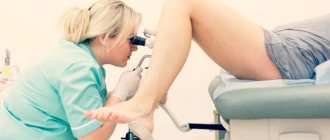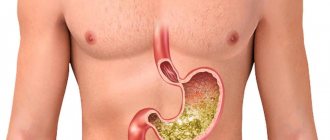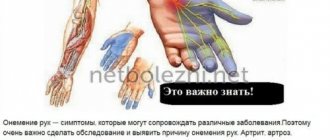- Physiological reasons
- Dental reasons
- Paresthesia of the lips due to damage or inflammation of the trigeminal nerve
- Numbness due to migraine with aura
- Numb lips due to stroke
- Numb lips due to diabetes
- Numb lips due to allergies
- Shingles
- Neuroses and multiple sclerosis
- Anemia
- Diagnosis and treatment
Lip paresthesia (numbness) is a condition in which tissue sensitivity decreases or disappears.
This process may be accompanied by tingling or other sensations. Numbness of the lips occurs for physiological reasons and is one of the symptoms of a certain pathology. First of all, it is necessary to pay attention to the frequency of occurrence and duration of this condition, its spread to other parts of the face and body. Lips may go numb in people who suffer from neurological and dental diseases, diabetes, anemia, allergies and a number of other diseases. If the symptom occurs frequently, an examination by a dentist and neurologist is recommended to determine the exact cause of the numbness.
Physiological reasons
Tissue sensitivity may decrease upon contact with very hot or cold food or drinks. This happens when a person eats ice cream, drinks tea or coffee that is too hot, or eats too spicy food. A similar phenomenon is observed outside in cold weather. The skin of the lips becomes chapped, cracks appear, and sensitivity decreases. Physiological numbness in most cases does not cause harm to health. As soon as contact with the irritant ceases, tissue sensitivity is restored.
To avoid the negative consequences of low-temperature exposure, you should use lipsticks and balms that will protect the skin from chapping and painful cracks.
Another possible cause of tissue numbness is cosmetic and cosmetic procedures. For example, lip products with red pepper extract may cause a slight burning sensation or numbness of the tissues. Some women experience a decrease in lip sensitivity after tattooing if the procedure was performed incorrectly or the wrong lip care was chosen after it.
Development of cervical osteochondrosis
If such a pathology develops, compression of the spinal cord occurs. The cause is prolonged tension in the muscular system or displacement of vertebral structures. As a result, the microcirculation of blood fluid deteriorates, and as a result, the required level of beneficial microelements does not reach the brain. If you ignore the signs of such a disease, dangerous consequences can develop, including a stroke. That is why it is very important to pay attention to alarming symptoms and visit a treating specialist in a timely manner.
In addition to medical prescriptions, it is very important to keep your posture in the correct position, avoid neck colds, and sleep only in the correct position. If you seek help in time, the doctor will be able to find out why the cramp occurs, and then create the correct treatment algorithm.
Dental reasons
When treating teeth and performing some types of cosmetic procedures, local anesthesia is used, which reduces the sensitivity of tissues. During the period of action of the drug, lips, cheeks, and other areas of the face become numb. After completion of the therapeutic manipulations, sensitivity is restored on its own.
Numbness of the lips and tongue is accompanied by inflammatory processes in the oral cavity. This happens with gingivitis, periodontal disease, and purulent lesions. Soft tissues are involved in the pathological process, which causes swelling and impaired receptor sensitivity.
How to eliminate lip cramps?
The lower lip becomes numb and the reasons are established, from this moment therapy begins, taking into account the results of the medical study. It is not recommended to do anything on your own. Medicines are selected by a specialized specialist, depending on the disease that provoked the cramp of the lower lip.
Drug therapy
Medicines must be taken strictly, following the instructions of the attending physician. Many drugs cause side effects and have serious contraindications. If the lower lip is numb, the patient is prescribed the following medications:
| Name | Application | Contraindications |
| Phenytoin | The medicine is taken orally after meals. The adult dosage is 0.5-1 tablet 2-3 times a day. |
|
| Carbamazepine | Adults are prescribed 100-200 mg 1-2 times a day. The dosage is slowly increased to 400 mg 2-3 times a day. |
|
| Neurodiclovit | The capsules are swallowed whole, do not chew, and washed down with water. It is better to take the medicine with food. The recommended dosage for an adult is 1 capsule 3 times a day. |
|
Considering the source of the unpleasant symptom, the patient may be prescribed symptomatic therapy with the use of other medications (antihistamines, anti-inflammatory drugs, hormonal drugs).
Physiotherapeutic procedures
Complex treatment of lip paralysis is carried out with the aim of restoring blood circulation in the area of nerve damage and eliminating associated symptoms.
Along with medications, doctors recommend their patients to attend physiotherapeutic procedures:
| Name | Description |
| Acupressure | The Eastern practice of reflex massage involves acupressure on active biological points located on the face. Sessions are conducted only by a qualified specialist. |
| Ultraphonophoresis | Ultrasound waves and medications are used during therapy. The active components of the selected medications go directly to the pathological focus. |
| Acupuncture | Acupuncture is a type of reflexology that involves inserting thin needles into a person's skin. There is an impact on biologically active points. |
The described procedures restore not only blood flow, but also lymph movement. During the treatment, the skin also receives a beneficial effect, its appearance improves, and paresthesia is eliminated.
Folk remedies
The lower lip goes numb (the reasons for what to do if discomfort occurs will be determined by the doctor after examination and diagnosis) against the background of various pathologies. Therapy is carried out using different methods.
Non-traditional methods in the fight against various pathological processes can be used, but only comprehensively and strictly after consultation with a specialized doctor. It is important to always remember the high risk of an allergic reaction or individual sensitivity.
Effective folk remedies for numbness of the lower lip:
| Name | Recipe | Application |
| Medicinal tincture | Mix celery root, valerian and Dubrovnik herb in equal proportions. Pour the resulting mass with wine, first dilute it with boiled water (600 ml). Leave the mixture for 2 hours and strain well. Add 1-2 tbsp. natural honey. | The resulting tincture should be taken orally, 100 ml before each meal. |
| willow bark | Pour 10 g of bark with hot water (250 ml). Place the resulting mass on low heat and simmer for another 20-30 minutes. Cool, strain well. | The medicine is taken orally 15 g 3-4 times a day. |
| Geranium | Wash the green leaves of the plant well and dry. | The leaves are applied as a compress to the lips. The procedure should be carried out 2-3 times a day. |
| Herbal collection | Mix horse chestnut bark, yarrow, primrose and sweet clover in equal parts. Pour 2 tbsp. herbal mixture with boiling water (1 l). Mix all ingredients well and put on medium heat, boil for another 5-7 minutes. Strain the resulting broth well and add a small amount of boiled water. | The finished decoction is used for compresses. Wet the gauze with the solution and apply it to the paralyzed lip. Procedures are carried out 2-3 times a day. |
In folk medicine there are a large number of recipes that will help eliminate the symptoms present in paresthesia of the lower lip. It is important to remember that unconventional methods alone will not be able to cure you, especially if we are talking about a serious illness.
In the absence of timely treatment, the lower lip becomes numb more often, which indicates the progression of pathological processes. It is important to promptly identify the cause of the disease and select treatment. There is no need to do anything on your own, as it can cause serious complications and consequences.
Numbness due to migraine with aura
Migraines with aura are attacks of severe headaches, which are preceded by impaired tissue sensitivity, visual disturbances (spots and “floaters” before the eyes), and speech impairment.
Patients with the neurological disease experience temporary numbness of the lips and sometimes half of the face. In some cases, the sensitivity of the upper limb may decrease. In addition to these symptoms, migraine with aura is accompanied by severe headache, which is pressing or throbbing in nature, dizziness and nausea.
Problems in the lower jaw
Loss of sensitivity after bone grafting, like any other surgical interventions, is much more common in the lower jaw. This is due to the fact that during surgery, with an atypically high location of the mandibular canal or a small amount of bone tissue, nerve damage or compression may occur.
Nerve damage during surgery
Thanks to the widespread use of radiography and computed tomography, such a complication is now extremely rare. It may be associated with an atypical location of the mandibular canal, fragility of bone tissue, or medical error.
During the process of access, removal of tooth root debris, and formation of new bone tissue, the nerve may be damaged by the instrument or compressed by excessive amounts of new bone mass. In this case, after the end of anesthesia, numbness of the teeth anterior to the site of bone grafting, the lower lip, chin, and part of the cheek may persist.
Nerve compression due to implant displacement
If a dental implant changes its location due to injury, inflammation, or violation of medical instructions, compression of the mandibular nerve may occur. A similar situation can develop both in the first days and weeks after surgery, and after a long time.
With such a nerve trunk injury, extremely severe pain may initially be felt, and only then numbness may appear.
Nerve compression due to abnormal healing
After bone grafting, the slow process of new bone formation begins. Sometimes regenerative processes follow a pathological path, when newly formed tissues compress surrounding structures, blood vessels, and nerves.
This condition develops gradually, over 1-3 months after surgery. Numbness also does not appear immediately. Initially, it may be almost invisible or appear occasionally, passing after some time. Over time, numbness may increase or may remain at the same level.
Numb lips due to diabetes
For patients with diabetes, it is important to control blood glucose levels and avoid sudden increases or decreases in sugar. Lips may become numb due to hypoglycemia - a decrease in glucose levels below 2.8 mmol/l. This happens when you take too high a dose of insulin or violate your diet or skip meals.
In addition to numbness of the lips, the patient experiences severe weakness, tremors in the limbs, rapid heartbeat, and excessive sweating. In severe cases, hypoglycemia leads to loss of consciousness and coma. To eliminate this dangerous condition, you need to eat something sweet with quickly doubling carbohydrates. If the patient is unconscious, intravenous glucose and glucagon injection are required.
Why does my upper lip go numb?
Physiological and cosmetic reasons
The appearance of the symptom is provoked by eating too cold or too hot food.
Numbness can also be a consequence of previous irritation of the upper lip from pepper or hot spices. At the same time, similar sensations are observed on the tongue and oral mucosa. The symptoms quickly disappear after stopping contact with the product. At sub-zero temperatures, strong winds, and high humidity, lips easily become chapped and crusty. Crusts impair the perception of tactile stimuli by nerve receptors, so their formation is accompanied by a feeling of numbness, which is complemented by a feeling of tightness due to a decrease in the elasticity of the skin, and the appearance of cracks.
In women, a decrease in lip sensitivity can be explained by individual intolerance to cosmetics (lipstick, lip gloss). Local itching, burning, and signs of skin irritation are possible. In some cases, the symptom is caused by an incorrect tattooing procedure or errors in lip care in the first days after manipulation.
Dental pathologies
One of the most common causes of numbness in the upper lip is diseases of the teeth and gums. The symptom is especially noticeable in severe inflammatory processes, accompanied by severe swelling of the oral mucosa and soft tissues of the face. It is provoked by gumboil, periodontitis, and gingivitis. In addition, numbness of the lip is observed after dental procedures performed under local anesthesia.
Trigeminal nerve injury
Isolated numbness of the upper lip rarely develops and is caused by trauma to the small branches of the n. maxillaris for bruises and open wounds of this anatomical area. A more common sensory disorder, simultaneously covering the upper part of the cheek, the side surface of the face, the outer corner of the eye, and the lower eyelid, is caused by damage to the trunk n. maxillaris, which is the second branch of the trigeminal nerve. It is found in fractures of the upper jaw, zygomatic bone, and compression by tumors.
Numbness of the upper lip
Migraine with aura
In patients with migraine with aura, an attack of cephalgia may be preceded by a transient loss of sensitivity in the hand, spreading to half the face and upper lip. Subsequently, the attack proceeds as usual. There is a throbbing or pressing pain in half of the head, nausea, slight dizziness, high sensitivity to bright light, loud sounds.
Cerebrovascular disorders
Numbness of the upper lip and other parts of the face and body is part of the clinical picture of a transient stroke or stroke. The symptom occurs against the background of headache, weakness, nausea, vomiting, vegetative-vascular manifestations (trembling, sweating, hot flashes), short-term disturbance of consciousness. Hemiparesis, decreased strength of certain muscle groups or one limb, facial asymmetry, and speech impairment are possible.
Hypoglycemia
Numbness of the lip is sometimes detected in patients suffering from severe diabetes mellitus; it develops as a result of severe hypoglycemia when using too high doses of insulin or poor diet. Combined with pallor, sweating, tachycardia, hand tremors. There are feelings of fear, excitement, followed by drowsiness, confusion, and fainting. Without help, coma is possible.
Quincke's edema
Numbness is caused by rapidly increasing swelling of the eyelids, cheeks, upper and lower lips. Quincke's edema forms against the background of an acute allergic reaction upon contact with pollen, animal hair, food, and other allergens. May be a consequence of pseudo-allergy. The condition develops suddenly within a few minutes, less often – hours. Hypoesthesia is often combined with skin itching, lacrimation, the appearance of copious nasal discharge, and difficulty breathing.
Herpes zoster
The cause of the pathology is the virus that persists in the body and causes chickenpox. Shingles symptoms may appear many years or even decades after the viral infection. The upper lip, as well as other parts of the face, become numb due to trigeminal neuritis. Typically, simultaneous involvement of the intercostal nerves, a rash along the affected nerve trunks.
Multiple sclerosis
The disease often manifests itself as weakness in the legs, combined with sensitivity disorders. Numbness and paresthesia are detected in the face, upper lip, torso, and limbs. There is a high probability of developing optic neuritis with reversible vision loss. Subsequently, with multiple sclerosis, paresis, symptoms of cerebellar damage, pyramidal disorders, and dysfunction of the pelvic organs are observed.
Pernicious anemia
The disease is caused by a disorder of hematopoiesis due to a deficiency of vitamin B-12. Manifested by weakness, tachycardia, dizziness, pale skin, puffiness of the face. Possible hypoesthesia of the upper lip, other areas of the face or limbs, and gait changes associated with neurological disorders. A characteristic sign of pernicious anemia is a “lacquered tongue.”
Neuroses
Loss of sensation in various parts of the body most often occurs in patients with hysterical neurosis. The patients’ complaints do not fit into the picture of a specific somatic pathology and are distinguished by pretentiousness and unusualness. Numbness of the upper lip is also sometimes seen in people with anxiety disorders. It may be part of the clinical picture of a panic attack or occur when the level of anxiety increases.
Diagnosis and treatment
Numbness of the lips itself occurs only for physiological reasons and does not require treatment. In other cases, patients note other signs of pathology: pain, weakness, dizziness, etc. Based on these, the cause of the sensitivity disorder can be determined and a treatment regimen can be selected. To make an accurate diagnosis, you need to consult a therapist, dentist or neurologist.
If inflammatory processes or tumors in the oral cavity are suspected, an x-ray is prescribed.
For neurological pathologies, CT and MRI are used to make a diagnosis. Laboratory tests help confirm or exclude the presence of diabetes and anemia. To get rid of numb lips, you need to eliminate the underlying cause. To do this, patients are prescribed drug therapy that effectively combats the symptoms of the disease. For tumors, fractures or injuries of the jaw, pulpitis, abscesses, and strokes, surgical treatment is required.
Characteristics of sinus lifting and bone grafting
Bone grafting in dentistry is designed to increase the volume of bone tissue to create suitable conditions for placing a dental implant. An increase in the volume of hard tissues can be carried out both through the use of one’s own bone material and with the use of synthetic substitutes. Bone grafting is performed on both the lower jaw and the upper jaw.
Sinus lifting is an operation performed exclusively on the upper jaw and, in essence, is a type of bone grafting. Its task is to raise the bottom of the maxillary sinus in order to increase the volume of bone mass. Additional bone material can be either your own or artificial. There are two ways to perform a sinus lift: open and closed. They differ in the complexity of execution and the ability to add different amounts of bone tissue.
Dental implant placement should not be confused with bone grafting or sinus lifting. These are two different operations, although they can be performed simultaneously. If there is initially a small amount of bone tissue, it may not be possible to place a dental implant immediately. Then, first, bone tissue is built up, and only a few months later, an artificial tooth is implanted.
Development of diabetes mellitus
If diabetes develops, the sensitivity of certain areas of the body often decreases. If the upper or lower lip tightens and a cramp appears, such signs may indicate the development of diabetes mellitus.
If such symptoms appear, it is very important not to hesitate and visit a doctor to find out why they appeared. If you have diabetes, your doctor will prescribe special medications that improve the concentration of glucose in the blood fluid. After completing the course of treatment, the tightening goes away on its own.
Signs of numbness
This phenomenon is called “paresthesia”. A sign of the onset of paresthesia is a lack of sensitivity, slight tingling, burning, a feeling that the skin is cramping, lasting from several minutes to an hour. With frequent relapses, it is necessary to determine the presence of other symptoms:
- drooping corner of the mouth;
- headache;
- impaired coordination of movements;
- numbness and burning in the back of the head, between the shoulder blades, in the neck;
- hypersalivation, change in taste;
- visual impairment (strabismus, lacrimation) and hearing (hypersensitivity to sounds).
In case of disorders of the central nervous system, numbness is accompanied by the symptoms described above.
Facial neuritis
This disease is common; its first symptoms are cramps or numbness of the lower lip or upper lip. This disease begins to develop due to failures in the transmission of nerve impulses from the brain to the facial muscles.
This disease requires immediate consultation with a doctor, since neuritis is dangerous for the development of complications, for example, paralysis of the facial nerve. To prevent such consequences, the doctor prescribes drug therapy and physiotherapeutic procedures.
Multiple sclerosis
According to many experts, with the development of multiple sclerosis, the first symptoms are numbness in the area around the mouth. This happens for the reason that pathological processes begin to develop in the central nervous system. Therefore, it is very important to visit a doctor if you have lip spasms.
Only if treatment is started at an early stage can the development of health-threatening complications be prevented. This disease cannot be completely cured. But with the help of drug therapy, stable remission can be achieved.
B vitamin deficiency
If your mouth is cramping, this may indicate the presence of some dysfunction in the central nervous system. The cause of such pathologies is most often a lack of vitamin substances in the body, in particular B vitamins.
To prevent this condition or get rid of it, it is recommended to include in your daily menu foods that are rich in vitamins:
- bread products;
- mushrooms;
- different types of nuts;
- fish products;
- fermented milk products.
The listed products contain a large amount of B vitamins, which improve the normal functioning of the central nervous system.
Possible complications
The success of therapeutic methods depends on the cause of the numbness. If it is caused by a dental disease, the prognosis is favorable. To restore sensitivity, problems that arose during treatment are eliminated. If you do not consult a doctor, serious consequences may develop.
With prolonged numbness, there is a high risk of developing tissue atrophy and nerve paresthesia. As soon as the first frightening symptoms of swelling and chills appear, you need to consult a doctor. Modern diagnostics will help to quickly identify the cause and select a treatment method.
Many people are familiar with the situation when the lip suddenly begins to pulsate or go numb. This condition is unpleasant and rarely causes serious concern. And in many cases, it is the only symptom of a serious illness that can progress and affect the nerves, causing paralysis of the face and other parts of the body. If attacks of loss of sensitivity are not isolated, contact a medical facility and undergo a series of examinations to exclude a dangerous pathology.
Numbness - complete or partial, external irritation or lack of skin sensitivity. Numbness of the lips is a rare manifestation in people, the causes of which can be the most unexpected factors. If numbness of the lips occurs cyclically, you should consult a neurologist to solve the problem. Self-medication and independent diagnosis can lead to irreparable consequences.










